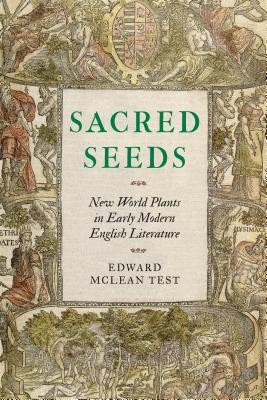
- We will send in 10–14 business days.
- Author: Edward McLean Test
- Publisher: University of Nebraska Press
- Year: 2019
- Pages: 246
- ISBN-10: 1496207882
- ISBN-13: 9781496207883
- Format: 15.2 x 22.9 x 1.8 cm, hardcover
- Language: English
- SAVE -10% with code: EXTRA
Reviews
Description
More than five hundred years after the fact, present-day writers still use hyperbolic adjectives to describe the "discovery" of the Americas. Columbus's crossing of the Atlantic--and the age of exploration that ensued--dramatically and forever changed the early modern world. The societies, economies, cultures, arts, and burgeoning sciences of Europe were quickly transformed by the ongoing encounter with the New World.
The meeting of the New and the Old Worlds, however, was more than a meeting of disparate civilizations. It was also a confluence of exciting and often surprising associations that continually created new interfaces between materials and knowledge. The Western and Eastern Hemispheres, brought together by sailing ships for the first time on a large scale, helped create the global landscape we take for granted today. Central to this formative moment in global history were New World plants. The agriculture of indigenous peoples mythically and materially shaped English society and, subsequently, its literature in new and startling ways.
Sacred Seeds examines New World plants--tobacco, amaranth, guaiacum, and the prickly pear cactus--and their associated Native myths as they moved across the Atlantic and into English literature. Edward McLean Test reinstates the contributions of indigenous peoples to European society, charting an alternative cultural history that explores the associations and assemblages of transatlantic multiplicity rather than Eurocentric homogeny.
EXTRA 10 % discount with code: EXTRA
The promotion ends in 17d.16:29:08
The discount code is valid when purchasing from 10 €. Discounts do not stack.
- Author: Edward McLean Test
- Publisher: University of Nebraska Press
- Year: 2019
- Pages: 246
- ISBN-10: 1496207882
- ISBN-13: 9781496207883
- Format: 15.2 x 22.9 x 1.8 cm, hardcover
- Language: English English
More than five hundred years after the fact, present-day writers still use hyperbolic adjectives to describe the "discovery" of the Americas. Columbus's crossing of the Atlantic--and the age of exploration that ensued--dramatically and forever changed the early modern world. The societies, economies, cultures, arts, and burgeoning sciences of Europe were quickly transformed by the ongoing encounter with the New World.
The meeting of the New and the Old Worlds, however, was more than a meeting of disparate civilizations. It was also a confluence of exciting and often surprising associations that continually created new interfaces between materials and knowledge. The Western and Eastern Hemispheres, brought together by sailing ships for the first time on a large scale, helped create the global landscape we take for granted today. Central to this formative moment in global history were New World plants. The agriculture of indigenous peoples mythically and materially shaped English society and, subsequently, its literature in new and startling ways.
Sacred Seeds examines New World plants--tobacco, amaranth, guaiacum, and the prickly pear cactus--and their associated Native myths as they moved across the Atlantic and into English literature. Edward McLean Test reinstates the contributions of indigenous peoples to European society, charting an alternative cultural history that explores the associations and assemblages of transatlantic multiplicity rather than Eurocentric homogeny.


Reviews